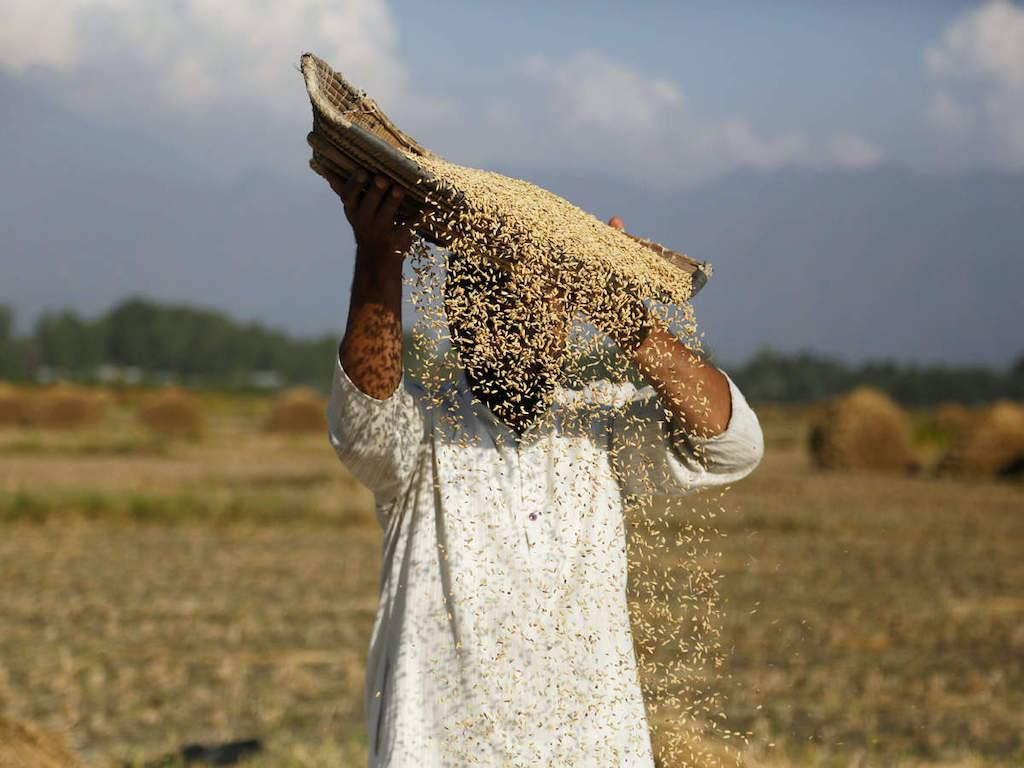
According to a study looking into the execution of the welfare policy, about 29 percent of farmers in Andhra Pradesh who registered under the PM KISAN scheme have not got their full benefits.
Beneficiary farmers receive Rs 6,000 per year in three equal instalments of Rs 2,000 from the Union government under the PM Kisan Samman Nidhi Yojana. The study, done by LibTech India, looked into the advantages earned by roughly 56 lakh registered farmers in Andhra Pradesh under the scheme.
The PM KISAN sum of Rs 6,000 is part of a total of Rs 13,500 provided by the YSRCP administration as an annual input subsidy for small and marginal farmers under the Rythu Bharosa scheme. Tenant farmers are also covered under Rythu Bharosa, with the state government covering the entire cost. The Union government distributed eight payments between the beginning of the PM KISAN plan in December 2018 and June 2021. During this time period, 56.37 lakh farmers were entitled to receive a total of Rs 8082.9 crore from the scheme. Despite this, just 71% of them had received all of their instalments as of June 2021.
A small percentage of the state's registered beneficiaries (1.6 percent, or 90,193 farmers) were found to be ineligible. Around 29% of the beneficiaries (16.61 lakh) had yet to receive one or more instalments, indicating that the farming input subsidies were not received on time. According to the report, they are owed roughly Rs 1091.2 crore. As of June 2021, almost 7% of the total beneficiaries (4,17,212 farmers) have received no benefits at all since the scheme began, despite the fact that some of them had registered as early as February 2019.
Researchers Venkata Krishna Kagga and Ajay Palle Swaero of LibTech India, an organisation of engineers and social scientists working to improve accountability in rural public service delivery, conducted field studies and interviewed officials in the districts of Visakhapatnam, Srikakulam, East Godavari, Chittoor, and Anantapur. A random sample of 5% transactional level data from each district was also examined (encompassing 2.85 lakh beneficiaries).
According to the study, roughly 46% of the excluded farmers (7,67,940) are missing out on subsidies due to bank rejections and other associated issues. Another significant factor was pending state action, which impacted 4,89,480 farmers. Other reasons include failure to verify Aadhaar numbers (which has caused a delay of Rs 98.6 crore in disbursement) and payment processing delays.
Many banks rejection cases, as well as instances seeking state action, have remained unresolved for three to 18 months, according to the researchers' fieldwork. They claimed that banks were unable to accept payments due to technical issues and a lack of standard operating procedures, producing ambiguity in the scheme's resolution processes.
“Farmers are ignorant of the failed payment status to act on to rectify and the available means to appeal the basis for ineligibility,” the researchers stated, urging the state to act on outstanding payments. To avoid this predicament, the state should make the data used to determine farmer eligibility public and give avenues for farmers to contest and remedy errors.”
















